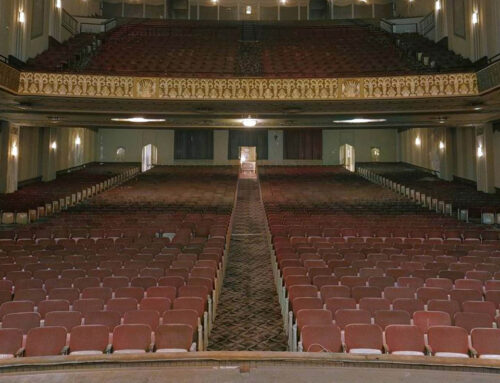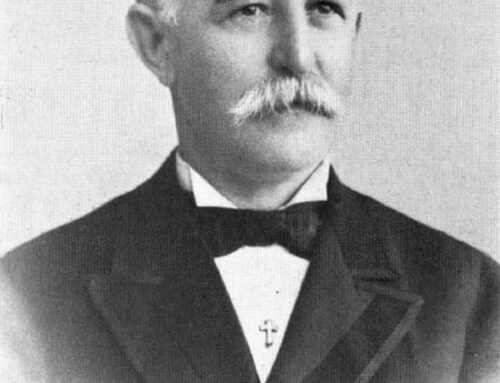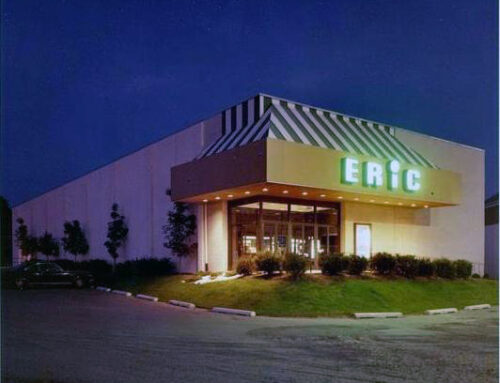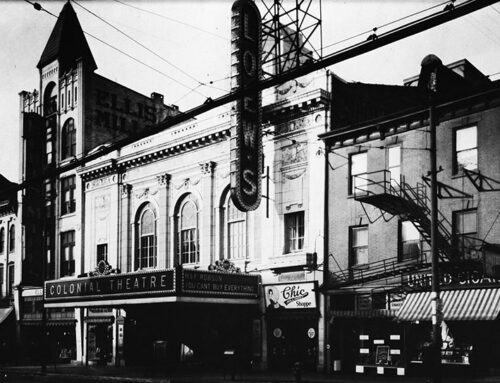Ben Zerr opened the Olivet Theatre at 647 Schuylkill Ave., near Oley, on Thanksgiving Day 1911. The initial attraction was “The Landing of Columbus.”
In 1913, this “motion-picture house” was renamed the Schuylkill Avenue Theatre.
Below: Schuylkill Avenue Theatre, 647 Schuylkill Ave.

Zerr was a creative promoter who was a master at attracting crowds and getting free publicity; his “events” were usually covered as “news” by local papers. A 1913 article claimed that this was “the first house in the world to show a 12-reel continuous picture.” It also stated that Zerr planned to add a balcony so that he could accommodate 800 patrons.
In 1928 the theatre closed and the building became a market house, and, later, a tabernacle.
The theatre was reopened on April 11, 1936, by Henry Sork and Harry Block who refurbished the interior, constructed a new marquee and entranceway, and rechristened it the “Rio.” Eventually, Mr. Sork took over as the sole operator, appointing Pauline Gilberry and John Leiss as managers.
This small movie house showed a variety of films over the years, including first-runs, but it is best remembered for its westerns and serials by the kids who flocked to its ticket window during the forties to see Roy Rogers, Gene Autry, Sunset Carson, and other sagebrush heroes kick up the dust as they chased villain Roy Barcroft across the silver screen.
The Rio had no candy counter. Instead, huge metal machines displaying chew-challenging treats like Black Crows and Jujubes stood just inside the lobby awaiting wartime nickels as motivation to drop their boxes of precious cargo. In addition, the Rio patron could choose to sit in a standard seat or, if so inclined, settle into a double-size throne at the end of the aisle as film dreams clicked out of the projector mounted in the upstairs projection booth, its single beam of light illuminating the tiny particles of dust which floated over the heads of spellbound moviegoers.
Like many other theatres of its time, the Rio also ran special kiddie programs at which youngsters could win various prizes. For example, the April 11, 1941, Reading Eagle ad for the Rio carried the following announcement in order to entice young patrons to part with their movie money.
BOYS’AND GIRLS’
BIG EASTER PARTY
AT OUR SATURDAY MATINEE
FREE-30-CHICKS-30
6-RABBITS-6
By 1948, Max Korr Enterprises was operating the Rio and attempting to revive its popularity by bringing in first-run features, but it was too late. Over the years of its existence, the little theatre had served the neighborhood well, but with the demise of the Hollywood studio system and the advent of television, the old picture house began to falter. Its final film ad appeared in the March 3, 1951, edition of the Reading Eagle which announced that, after that date, the theater would be temporarily closed.
Below: Rio Theatre, Schuylkill Avenue, Reading, 1949.

Sadly, this was not a temporary closing. Thus, the film playing at the time, “King Solomon’s Mines,” became the last film ever to play the Rio. The last film ad for the Rio Theatre announcing its “Temporary Closing” as it appeared in the March 3,1951, edition of the Reading Eagle.

In July of 1951, Zerbe and Company contractors bought the building and opened the Zerbe Hardware store which remained in business until May 2, 1962, when a general alarm fire, punctuated by two explosions, demolished what had been Ben Zerr’s “little picture house.” The site is presently a vacant lot.
Below: Scores of firefighters in the rear of the Zerbe Hardware store at 649 Schuylkill Avenue on May 2, 1962. The crews shown here were operating in the 600 block of Lincoln Street and kept the fire from spreading into the three-story apartment building on the right. A large portion of the hardware store collapsed during the general-alarm fire.

Below: Vacant Lot, 649 Schuylkill Avenue. Former site of the “Rio” theatre.







Leave A Comment